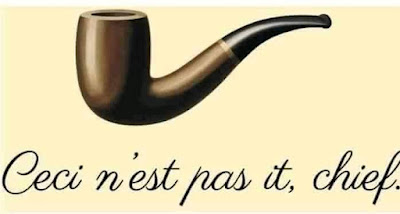Each Line is an Act: Lynda Barry's Syllabus
So many things I feel like writing about this week. Partly wanting to apologize to the universe for the temper tantrum I threw last week in my blog post; partly wanting to reaffirm said temper tantrum and say eff you to the universe; partly wanting to talk about teaching and The Overwhelm and how I've felt more down this week than any week since A. left for Puerto Rico, even though nothing really has changed. Partly wanting to talk about writing and writers I love and things that make sense to me and my obsessive need to archive or hoard all of those things I love.
I've just about come to the end of my latest journal. I keep a notebook for lists and notes on meetings and plans for work and homelife, but my journal is a combination of a reader's notebook and writing pad. I draft the beginning of poems by hand almost always, and so this is where the really bad stuff gets its start, and stays -- usually, but unfortunately not always. When I work on my play(s) I draft by hand too, but on legal pads. I think it's because I need the expanse of the legal pad and the quick flip of its pages. It provides space to breathe and ease of movement. Anyway, my journal is where I also write down excerpts from essays I read and lines from poems I'm enamored with. I collect and collect and collect, probably more than I write. That probably doesn't say good things about me as a writer. Or maybe it does. (Somewhere between this blog and the journal, I come to figure things out. . . I think . . .)
Huh. ANYWAY, as I was writing in the last pages of this journal -- which I purchased back in January of 2015, which goes to show you how prolific I am -- I was thinking to myself, "how often will I go back and reread these quotes?" Not very often. And then I wondered if I was okay with that -- I mean, I am a believer in the kinesthetic act of writing. I've read the studies about how our brains are more actively engaged in what we learn when we're writing by hand. But I also know how itty bitty my brain feels at times -- how shallow its grooves, how little it seems to retain. So writing down for future use makes sense to me.
And yet what future use?
So I thought that maybe for the next few blog posts I might pull up some of the material I've written down and engage with it again -- take a few sentences to think about why I wrote it down in the first place, and how it might be useful to me, to writers in general, etc.
I'll start with these from Lynda Barry's Syllabus:
"When someone learns to draw -- to render -- it's the first thing that goes -- the aliveness -- and it's what some artists spend their whole lives trying to get back."
"We know that athletes, musicians, and actors all have to practice, rehearse, repeat things until it gets into the body, the 'muscle memory,' but for some reason writers and visual artists think they have to be inspired before they make something. Not suspecting the physical act of writing or drawing is what brings that inspiration about. Worrying about its worth and value to others BEFORE it exists can keep us immobilized forever. Any story we write or picture we make cannot demonstrate its worth until we write it or draw it. The answer can't come to us any other way."
"Both writing and drawing lean on a certain kind of picturing -- not the kind that is already finished in your head and just needs to be put to words or reproduced on paper -- it's a kind of picturing that is formed by our own activity, one line suggesting the next. We have a general direction but can't see where we are until we let ourselves take a step, and then another, and then we move on to the third."
"Where do cartoon characters come from? In over 30 years of drawing I've never thought one up. I just draw and they seem to show up . . . I want them to be really good right away and this stops the natural discovery and replaces it with an objective. THIS CAN"T BE HELPED."
"Each line is an act."
I love that last one -- I love it both in the context of visual art and in the context of writing poetry: the reminder that art is a conscious, deliberate action. Barry's Syllabus has really been a seminal book for me -- something that set off a
whole new approach to teaching in general and teaching creativity in
particular. It combines theory with practical application, which is the best kind of book about teaching and art, ammaright? Barry's humility combined with her intelligent, informed opinion makes her approach to pedagogy (a word that typically makes me wanna wretch) truly accessible and memorable.
***
More things I'm reading, albeit piecemeal, this week:
Alicia Ostriker's Waiting for the Light
Tim Ferriss' Tribe of Mentors



Comments